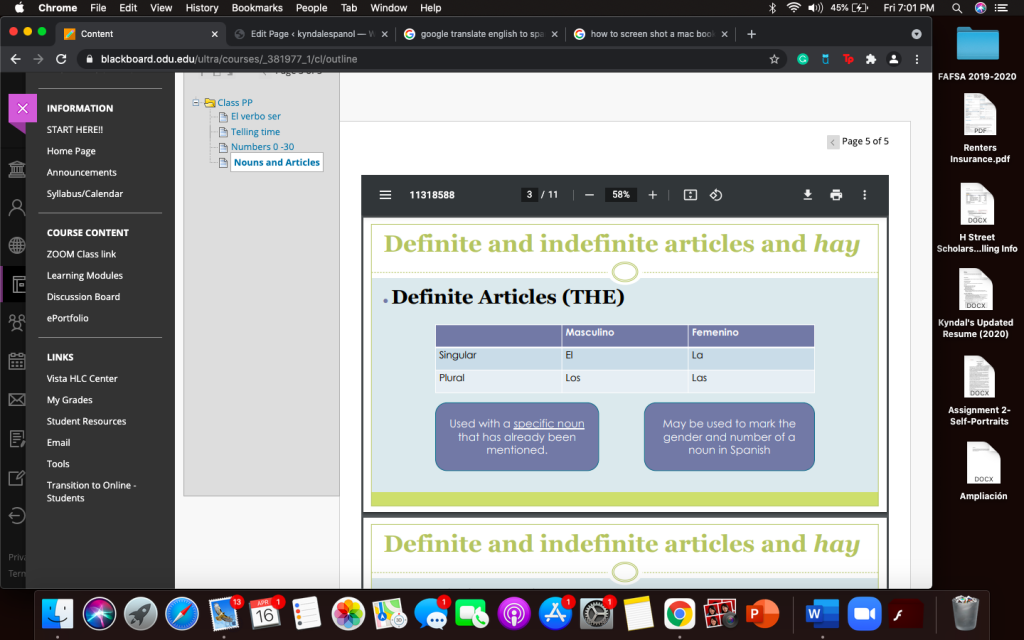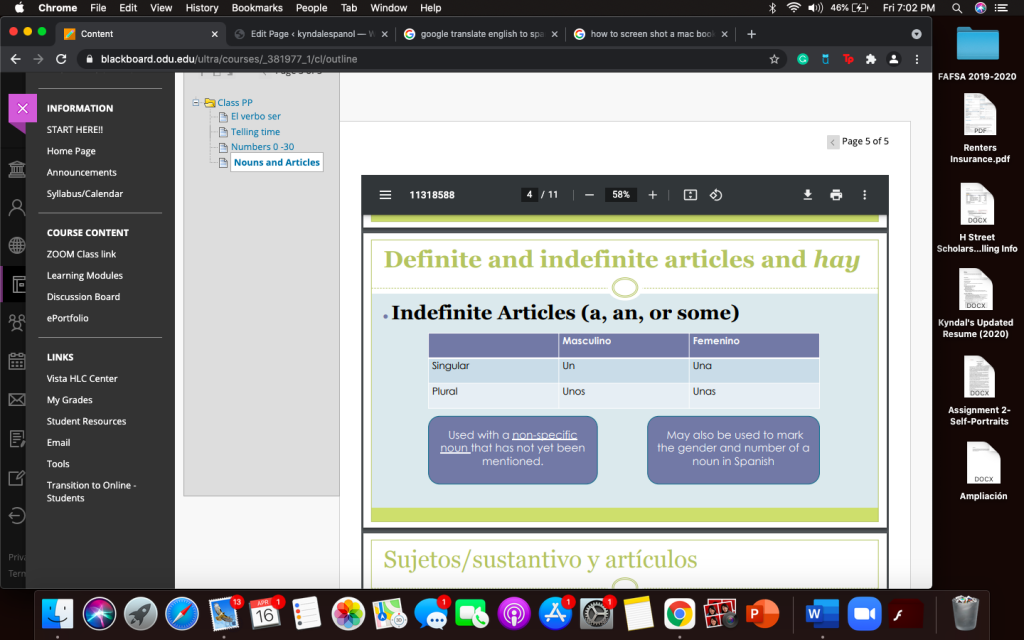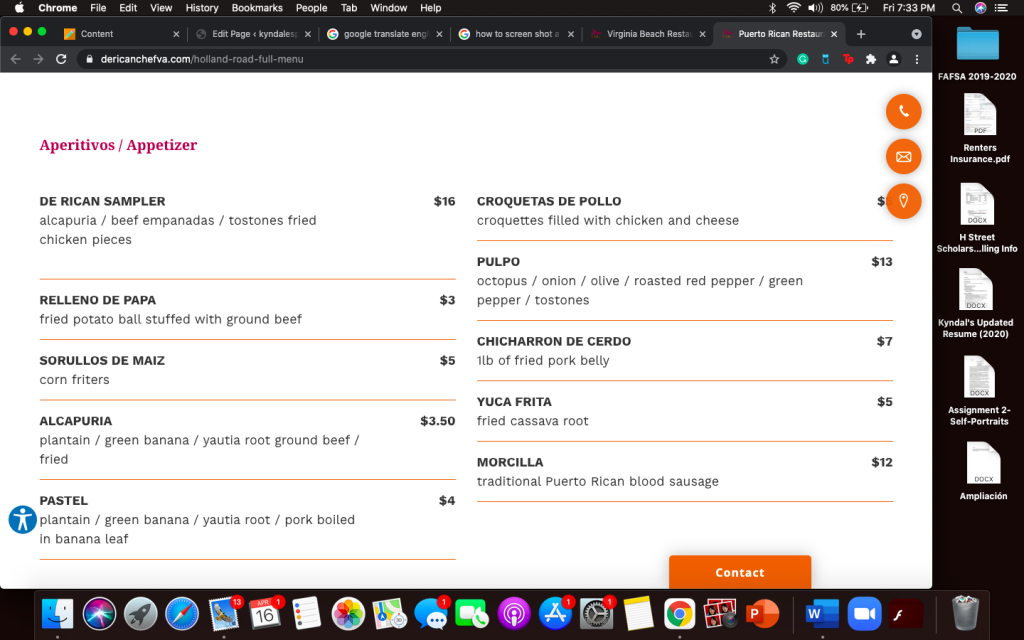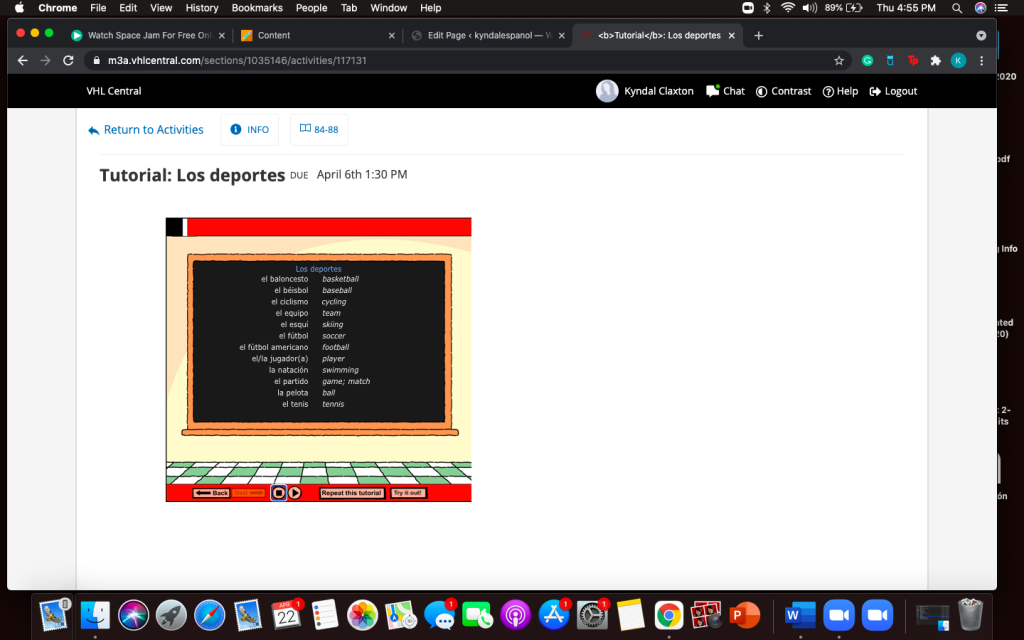Interpretive, Interpersonal, and Presentational Modes of Communication
Spanish 101 Reflection
Reflecting on my time here in Spanish 101, I’ve come to the conclusion that learning a foreign language it’s not that hard, and it’s not as bad as I thought it was. When I first arrived in Spanish 101, I was met with the obstacle of being confused with my answers for past and present tense verbs like “to be” and “to go”. I was always mixed up between the pronouns: Tú and Ello/Ella/Usted. Throughout Spanish class, I’ve come to learn that when the pronoun is Tú, you add an “s” to the end of the verb. However, when it’s Ella/Ella/Usted it’s singular. For example, the verb form for the meaning “to go” for the pronoun Tú is “vas”. While the verb for the pronoun Ello/Ella/Usted us “va”.
Although I’ve faced a lot of challenges I’ve also had a few tricks under my sleeve. Before I took Spanish 101 I took Italian 101 a couple of semesters ago. With that being said I already knew that some Spanish words sounded similar to the Italian words and some of the rules were similar as well. For example, if a word is masculine the ending of the word ends in o-. If the word is feminine the end of the word ends in a-.
Artifacts


Instructions
Exploring Culture
In the “Cultural” assignments I’ve learned a lot of cultural perspectives and different ways people express love in foreign countries than in the United States. I remember one video where a tour guide was showing us Argentina, and I found out that the way Argentinians greet each other is by kissing them on the cheek. Or in another video of a tour guide showing the audience the sporting life of Spain. Spain celebrates Fútbol like how we celebrate Football (American) and Basketball here in the United States.
Watching these videos on different cultures (especially during a pandemic) made me realize that American greetings and the ways that we express love are different. In America, I feel like we care more about personal space and individuality. We’re not as open as people from Argentina or Spain. I respect and admire their culture because as an American, walking down the street nowadays you won’t even get a polite smile. I think if I was to go to a Hispanic foreign country I need to be more open and just ready to participate in a family oriented community.
Engaging in Communities
Engaging in my immediate community is easy because I live in an area where that is mostly African -Americans and Hispanics. The people here are easy to talk to and we have a bunch of Authentic Mexican restaurants where they have a Spanish menu and then English right under it for translation. Living in this area has given me little tools t remember Spanish words and what they mean just by talking to different people and trying new things.

Interpersonal Communication
At the beginning of the semester on the VHL homework, one of our first assignments was to record us saying the letters of the Spanish alphabet and also record us saying words that started like said letter.
I feel like activities like this can be helpful in an in-person class because can have an opinion of whether I pronounced the words rights and also with the computer, my sound kept cutting out. I don’t know if it was my computer but the website never got a full recording of my voice.
Presentational Speaking
Towards the middle of the semester, we had to do student interviews. We had to work with a fellow student and ask and answer questions about our schools and the classes that we’re taking. The interview could only be 3 minutes.
This was our best presentation assignment because we got to learn from other classmates. My particular classmate did a really good job explaining what the phrases mean and how to go about my interview without stumbling or messing up.
Presentational Writing

In the photo above we had an assignment to create your own family tree and describe your family.

This was probably the hardest activity because I don’t know a lot about my family and I had to call my mom in order to give a proper description. So it gave me more insight on my family which was really refreshing.
Interpretive Listening
In our VHL homework, we had to listen to tutorials on how words are pronounced and their translation. Then we had to answer multiple-choice questions about the words we just learned. For example, we listened to tutorials about things we do in our free time. It wasn’t difficult to learn simply because the questions came right after the monologue.

Interpretive Reading
In this assignment we had to read about family and answer questions after you read them.

These were the easier activities to complete because all you had to do was read the passage, and answer questions based on the readings. The story that was most compelling was the one about Marissa and Felipé discussing family. With each assignment I’ve learned to answer the questions in a fast and accurate pace.